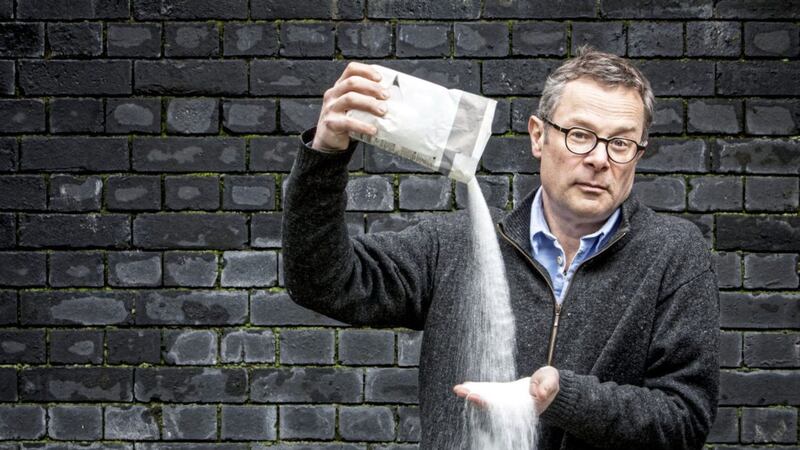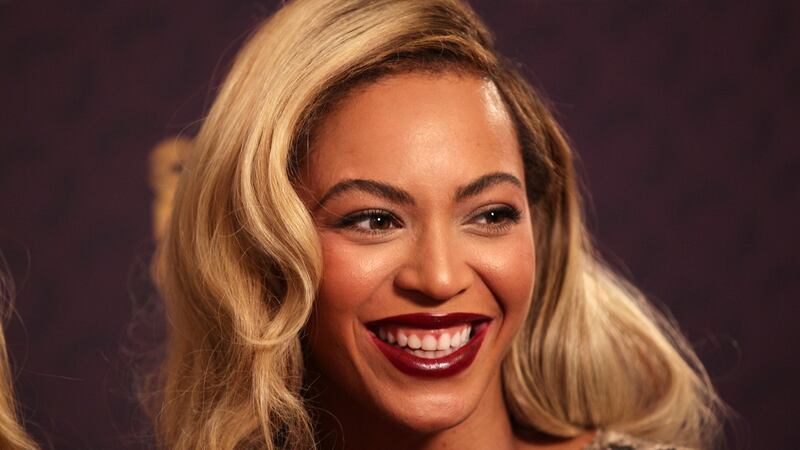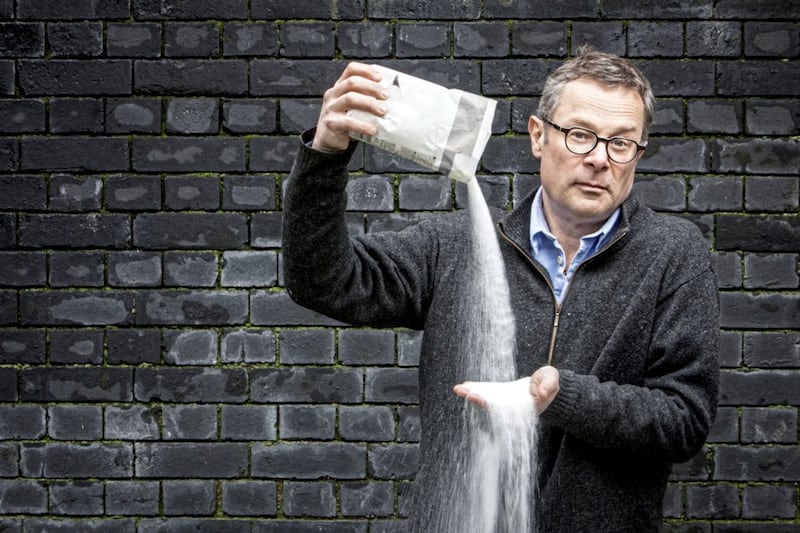HUGH Fearnley-Whittingstall is on another mission, perhaps his most important yet. Following his war on waste and his battle for fairer fishing, the TV chef and campaigner is now shining a light on the UK's obesity crisis.
In a new BBC series, Britain's Fat Fight with Hugh Fearnley-Whittingstall – which he hopes will "create a bit of mischief and shake things up" – he asks the questions that matter: Why are we eating so much? How has Britain found itself one of the most obese countries in Europe? And how can we turn the tables before it's too late?
"The life force that sustains us is food, and it has the capacity to bring such pleasure and joy," he says. "But it is almost to the point where it is doing more harm than good."
He reels off just some of the statistics, and they make for uncomfortable reading.
"When you get to the point where two-thirds of the population are overweight or obese, a quarter of the population are clinically obese, 30 per cent of us are pre-diabetic... you realise this is a problem that won't just gently resolve," he says.
WHY ARE WE GAINING WEIGHT?
As Fearnley-Whittingstall (53) discovers, there may be far more to the trend towards weight gain than just greed or laziness.
Across three episodes, he explores a number of factors that have contributed to the obesity crisis, sometimes confronting them with a passion that simmers over into rage.
"One thing is certain," he starts, "it is not just individual action and inspiration and willpower that will turn this around. It's a complex issue, and not just one thing has gone wrong – it's a bunch of developments that have conspired to make our diets very unhealthy."
He continues: "We need to make it completely clear that we can't just cherry-pick a couple of those things.
"We have to really look at the whole food culture, the profound over-availability of these highly calorific, highly processed and hyper-palatable foods."
WHAT ARE SOME OF THE CAUSES?
Among his many efforts, he challenges the big corporations whose food labelling methods – from colourful packaging to the lack of transparency in nutritional information displays – leave consumers confused.
Highlighting how much sugar is often unknowingly packed into big-brand cereals, he shocks a group of parents when they realise the volume of the white stuff their children are consuming daily.
He is also faced with a large array of convenience food stores and takeaways in poorer areas when he visits Newcastle.
"I think that there is a danger of a big section of the population being left behind," he says.
"They are not necessarily being left behind because they are not interested. They are being left behind because the communities they live in are left behind."
The marketing tactics sometimes used to sell unwanted confectionery to shop customers also enrages him.
He stresses that "we are all a little bit tired of having to walk our kids by a wall of confectionery with things for them to glare at, at eye level".
There is so much food and drink on display wherever we go, it is "bombarding us relentlessly", he adds.
A POPULATION AT RISK
The problem is not entirely down to us each as individuals, Fearnley-Whittingstall insists, because "people don't evolve in a generation".
"We don't become a different society, we don't become different humans," the presenter says.
"What can evolve, in the space of 30 years, is an industry, and the combination of agriculture, food developments, food design, marketing, and the ability to target certain social groups for certain things.
"These things are all driven by a free market. It turns out to be loaded against us, giving us a lot of problems. It's time to call it out and do something about it."
We're also at risk, he says, because we are "normalising the national weight gain".
"We can't really afford to keep resetting the bar because of the consequences of it, and they are really grim."
Fearnley-Whittingstall is personally shocked when his doctor warns him that he is in the overweight category, and therefore at a higher risk of developing diabetes and other weight-related diseases.
"It wasn't that I was completely unaware that I might have been overweight," he confesses. "I just hadn't really thought about being in the statistic and what that really means."
GETTING POLITICAL
In his campaign to fight the fat, Fearnley-Whittingstall heads to the Tory Party Conference "in the hopes of speaking to the secretary of state for health, Jeremy Hunt".
"I did catch up with him briefly, but he didn't really want to talk," he says. "His team led me to believe that he would come forward for an interview. Then that turned into a bit of a saga. There is a sort of interview but it is a little bit unconventional."
He also enlists the help of another high-profile food campaigner, Jamie Oliver.
"It would be ridiculous not to recognise the amazing work Jamie has done, so I go and talk to him about what I have been finding out," he reveals.
"We have great solidarity on this issue and that's important for me too, that people see that we really want to work together on this."
WHAT DOES THE FUTURE HOLD?
Fearnley-Whittingstall says we must come together to "challenge society and challenge the government" to make real change and turn things around for our health.
So, what are his hopes for the next five to 10 years?
"I hope that now, in the next year or two, we find ways to start turning things around," he says, optimistically. "I hope we can come up with a really long-term and robust plan to turn things around, but it will involve changing many things.
"It will involve a government that is really committed to this over the long term."
He says, among many things, he wants restaurants to start offering healthier choices, particularly for children, and for food companies to "have a sense of corporate responsibility for our health".
He wants them to stop marketing certain foods by "ringing bells and whistles and adding colourful whizz-bangs" to their products, to stop marketing them in a "very aggressive way".
He concludes: "We just want our kids to be happy, and we just want it to be easier to make healthy, responsible choices."
:: Britain's Fat Fight with Hugh Fearnley-Whittingstall begins on BBC One on Wednesday April 25.



